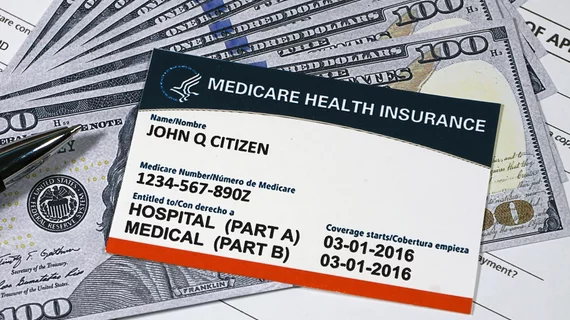Medicare negotiates lower price for 10 vital drugs, saving seniors $1.5B
The Biden administration has negotiated lower prices for 10 vital drugs that help manage diabetes, Chron’s disease, heart failure and more. The price cut is the result of months of negotiations between the Centers for Medicare & Medicaid Services (CMS) and drug manufacturers.
The move reduces costs for Medicare, ultimately saving the program $6 billion in just one year, an announcement from the Biden administration released on Thursday said. The discounts are expected to go into effect in 2026.
“For years, millions of Americans were forced to choose between paying for medications or putting food on the table, while Big Pharma blocked Medicare from being able to negotiate prices on behalf of seniors and people with disabilities. But we fought back—and won,” President Joe Biden said in a statement.
President Biden added that the move will save Medicare beneficiaries an esteemed $1.5B in out-of-pocket expenses. The full list of drugs with reduced prices is as follows:
- Januvia - A 30-day supply will drop from $557 to $113.
- Flasp - The price will decrease from $495 to $119 for a 30-day supply.
- Farxiga - The price will drop from $556 for a 30-day supply to $178.50.
- Enbrel - The price will fall from $7,106 to $2,355 for a 30-day supply.
- Jardiance - A 30-day supply will drop from $573 to $197.
- Stelar - The price will decrease from $13,836 for a 30-day supply to $4,695.
- Xarelto - Will fall from $517 to $197 for a 30-day supply.
- Eliquis - The price will decrease from $521 to $231 for a 30-day supply.
- Entresto - A 30-day supply will decrease from $628 to $295.
- Imbruvica - The price will drop from $14,934 to $9,319 for a 30-day supply.
The numbers come from a statement from CMS. However, it’s important to note the cost shown may not reflect the actual out-of-pocket expenses of patients, as they reflect only Medicare’s cost.
All 67.3 million people on Medicare are expected to benefit from the lower negotiated prices. The list of drugs are all commonly prescribed to seniors.
“This historic milestone is only possible because of the Inflation Reduction Act, which passed with the leadership of Democrats in Congress, and with Vice President Harris casting the tie-breaking vote in the Senate—without a single Republican voting for it,” President Biden said. “We showed that major progress can be made for the American people when we work together to take on special interests, even as Big Pharma continues to go to court to try to block lower prices for consumers.”
In its statement, CMS said negotiations for the lower prices began in February 2024. Medicare reached an agreement with drug manufacturers on August 1. 7

